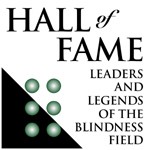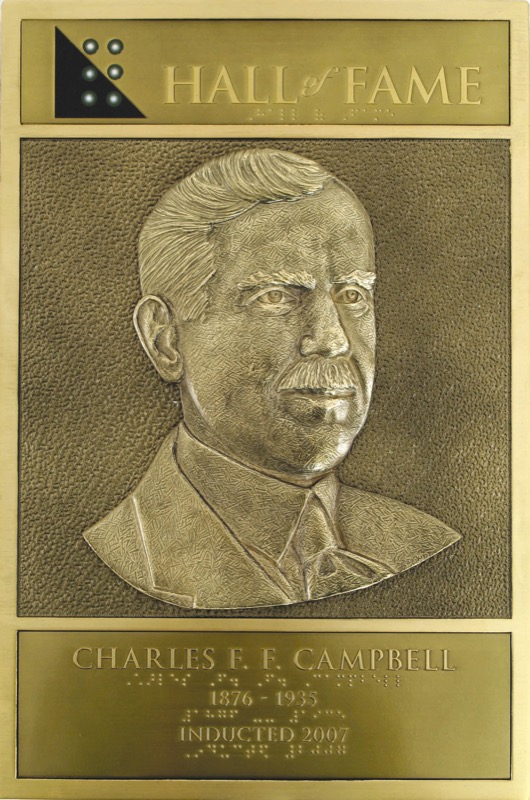Charles F.F. Campbell
Inducted 2007
Charles Campbell, known as Charlie, (1876-1935) grew up on the London campus of the Royal Normal College for the Blind (RNC), established in 1872 by his father, Sir Francis Campbell, who was an adventitiously blinded American. After completing his degree at Massachusetts Institute of Technology, he returned briefly to the RNC to work on vocational training programs for the blind.
He soon returned to Massachusetts and through his innovative work became a leader in the development of modern vocational rehabilitation for blind adults by demonstrating to blind people and the public the many and varied jobs that could be done without sight. In 1904 he established an "experiment station" to train and place blind workers in industry at the Massachusetts Association for the Adult Blind. This successful program was continued by the newly established Massachusetts Commission for the Blind in 1906 and represented the beginning of pioneering innovations in employment, training and placement of adult blind in the United States.
In 1907 Charlie launched the field’s first professional journal, titled Outlook for the Blind, later renamed the Journal of Visual Impairment and Blindness. With the help of his first wife, Wilhemina and her sister, Mary, who became his second wife after Wilhemina died, Charlie edited the Outlook for its first 16 years without remuneration. The publication was a forum for the free and open discussion of topics connected with work for the blind and supported the development of professions and disciplines serving these individuals and their families.
Charlie Campbell was also a leader in the movement to evolve the Blind People’s Higher Education and Improvement Association, started in 1895 by graduates of schools for the blind as a counterpoint to the American Association of Instructors for the Blind (AAIB), the organization run by the Superintendents of the Schools for the Blind. In 1905, under the leadership of Charlie Campbell and Ambrose Shotwell, this organization was reconstituted as the American Association of Workers for the Blind (AAWB). Charlie served as the volunteer Secretary until 1919. This organization helped to professionalize service for adults who are blind.
Charlie served as the Executive director of the Pennsylvania Association for the Blind and then the Ohio Commission for the Blind in Columbus. He also served as the Superintendent of the Ohio State School for the Blind and in a leadership role at the Detroit League for the Handicapped. In 1931 he was a key figure in the 1931 World Conference of Work for the Blind which began the development of a unified code for Braille in the English-speaking world.
He was considered by his peers to be the most effective advocate for the establishment of the American Foundation for the Blind in 1923 which became a strong voice advocating for quality services for blind children and adults and their family members. He was influential in convincing Helen Keller to participate in AFB’s mission of advancing the cause of blind persons throughout the world. Upon his death, Dr. Edward Allen wrote of him that "he was America’s best friend of the blind."
"While I was still at Radcliffe College, his eloquent pleadings convinced my teacher and me that there was something we could do to better the condition of the adult blind." — Helen Keller, 1936
"The modern conception of work for the adult blind throughout the entire country owes more to his inspirational, vivacious initiative than to any other single factor." — C. W. Holmes 1936


